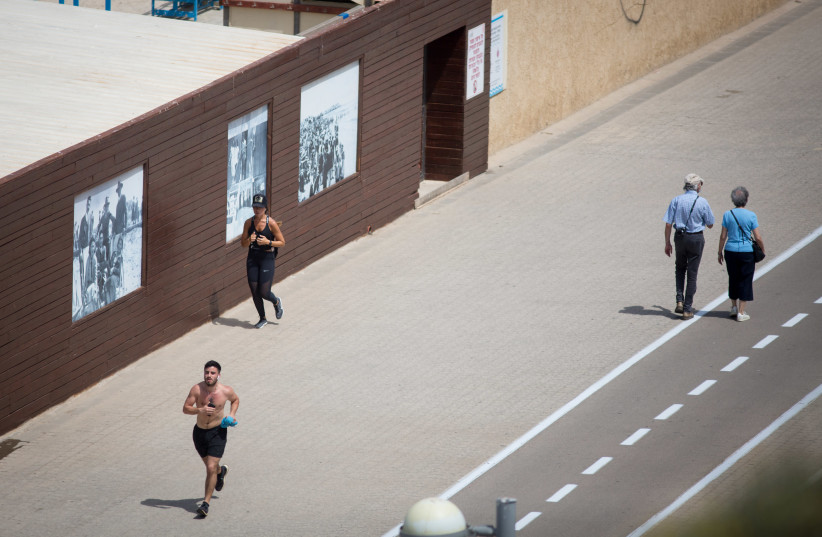Gov’t zigzags on 500-meter limit for sporting activity * Cabinet to meet on returning to school today * Death toll hits 201 * No new infections in Tel Aviv

In a blow to the government, the High Court of Justice ordered the state to pass legislation if it wants to continue Shin Bet (Israel Security Agency) surveillance of Israelis infected with the novel coronavirus.
In their decision, the justices ordered Prime Minister Benjamin Netanyahu’s government to pass legislation that will regulate the use of the tracking tools. The surveillance program has been criticized since it was implemented shortly after the health crisis began in Israel nearly two months ago.
The current legal basis was inadequate, the justices said, and if a law was not passed in the Knesset, they would be forced to end the program.
Earlier in the evening, the government zigzagged over a decision concerning restrictions on sport activities.
At first, it approved lifting the restrictions and informed the Health Ministry, which then panicked that too many people may venture outside during the Independence Day holiday. As a result, the ministry asked the government to revoke its decision, which it did.
The final verdict according to a statement by the Prime Minister’s Office: The 500-meter restriction will be lifted as of April 30 at 8 a.m.
Minister of Culture and Sports Miri Regev said she welcomed the Health Ministry’s adoption of her recommendation to lift the restriction. She said her ministry was preparing to “expand sporting activities immediately after Independence Day,” and it was considering opening workout centers and swimming pools.
Beginning Thursday, runners and cyclists can run alone or in small groups as long as they maintain a two-meter distance from one another. Golf, marine sports, tennis, archery, horseback riding and other similar activities can be resumed. Athletes are asked to use their own personal equipment and disinfect it between training sessions. If people work out together, they should stay two meters apart.
The move came a day after restrictions were relaxed to allow some establishments to reopen, including hairdressers, beauty salons, restaurants and cafes for takeaway. Caregivers were allowed to return to work.
Netanyahu is scheduled to convene a meeting of top ministers on Monday to discuss the reopening of schools, which are expected to start in a limited framework next week. A preliminary meeting between top officials from the relevant ministries took place on Sunday.
The plans under consideration include resuming school on Sunday for infants through third grade or resuming school only for children in kindergarten and younger.
Either way, the class size will likely be limited to just 15 students. Remote learning will continue for children in grades 4 through 10. Teens in grades 11 and 12 will come to school for matriculation exams in small groups.
On Sunday, Israel’s death toll reached 201, with 8,501 active cases of infections, including 133 in serious condition, out of which 99 are on ventilators.
The majority of new cases are concentrated in Jerusalem, Bnei Brak, Beit Shemesh and Modi’in Illit – all cities with large haredi (ultra-Orthodox) populations, referred to as “hot spots” and “red zones.”
The Israeli-Arab city of Hura also has reported a spike in infections, with 19 patients, up from three just three days ago, representing a 533% increase.
Among the patients in serious condition is an 11-year-old girl who was staying at a coronavirus hotel in northern Israel with her family when last Friday her condition took a turn for the worse.
She was transferred first to Baruch Padeh Medical Center in Poriya near Tiberias.
Over the weekend, she developed pericarditis, an inflammation of the two thin layers of a sac-like tissue that surround the heart, and was moved to the intensive-care unit for coronavirus patients at Rambam Medical Center in Haifa and is now intubated.
She is the country’s youngest patient to be in serious condition.
As reported by The Jerusalem Post
